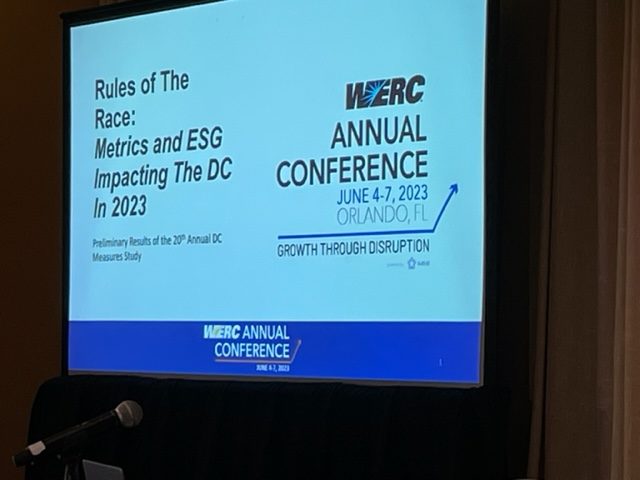WERC releases 2023 DC Measures report
Annual study reveals laser focus on the customer, growing awareness of ESG initiatives and their impact on warehousing and supply chain.

The Warehousing Education and Research Council (WERC) released findings of its annual DC Measures survey during its 46th Annual Conference, being held in Orlando this week. Researchers Joe Tillman of SMC3, Donnie Williams of the University of Arkansas, and Karl Manrodt of Georgia College & State University presented top-line findings and shared an executive summary of the report during a thought leader session on day two of the conference.
Now in its 20th year, the DC Measures report examines the latest developments in distribution strategies and operational metrics. The survey of distribution and logistics professionals contains more than 30 metrics companies can use to benchmark their operations, understand industry trends, and make informed, data-driven decisions, according to WERC. This year, the researchers also studied the increasing role that environmental, social, and governance (ESG) initiatives are playing in the DC and throughout the supply chain—to create awareness and start a conversation about ESG in the industry, the researchers said.
Among the key findings, respondents to this year’s survey said they are laser focused on their customers. The researchers said that “the perfect order”—which consists of orders that shipped on time, complete, damage free, and have the correct documentation—were the top four most commonly used metrics by respondents, marking the first time all four measures made it to the top of the list.
Among the ESG findings, respondents said they agree these measures will affect their company, but they have mixed opinions about whether or not they will be positive or negative. According to the report’s executive summary, 60% of respondents said ESG will make them more competitive, but just 23% agree that they will positively impact DC performance or help reduce costs.
The researchers urged attendees to start setting goals, collecting data, and communicating progress about their ESG initiatives so they can start “building a story about what you're doing internally.” They also urged attendees to stay informed about ESG initiatives in their vertical industries, and keep tabs on broader conversations at the government level regarding the evolution and potential effects of ESG on business and society.
WERC 2023 takes place June 47 at the Hilton Orlando.
Related Articles

Copyright ©2024. All Rights ReservedDesign, CMS, Hosting & Web Development :: ePublishing